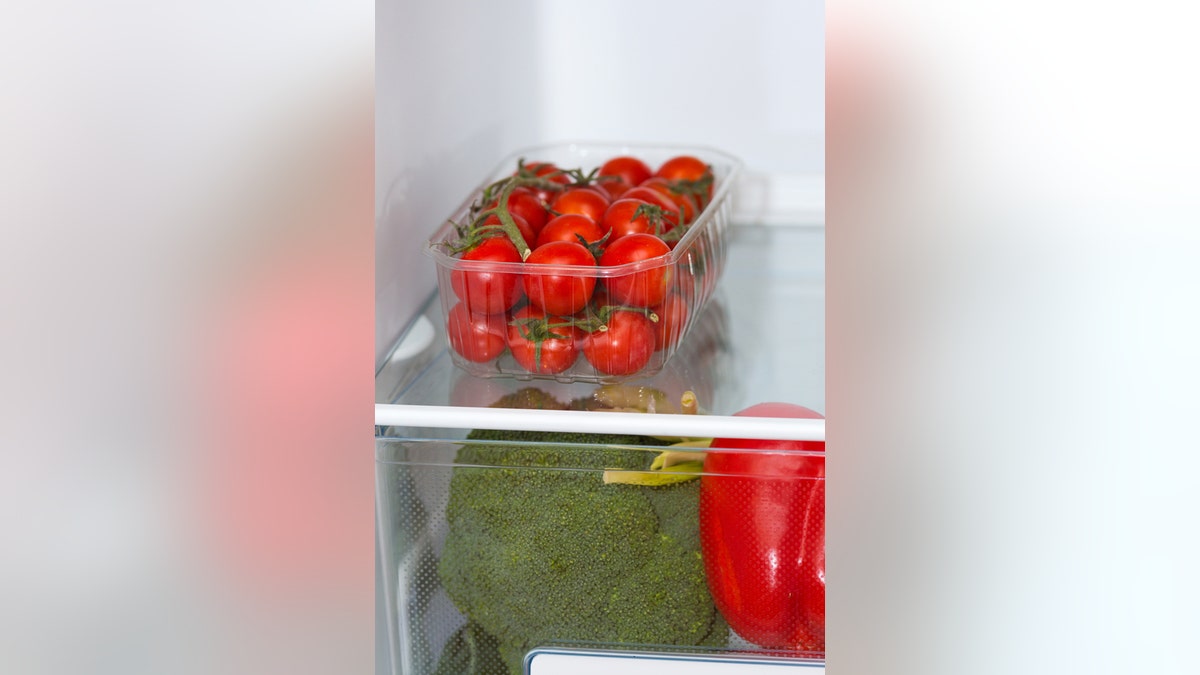
Keeping tomatoes in the fridge may not be good idea. (iStock)
It may seem practical to keep fruits and veggies from spoiling by storing them in the fridge, but there's one variety that should stay out on the counter.
The New York Times reports on new research out of the University of Florida that finds when tomatoes are harbored in temps typically found in refrigerators, their flavor weakens, and some of that flavor doesn't come back.
The study published in Proceedings of the National Academy of Sciences suggests that chilling tomatoes can cause "altered volatile synthesis" and "transient changes in DNA methylation"—a fancy way of saying that even when the tomatoes are brought back to room temperature, the genes that make a tomato taste like a tomato have been "turned off," and the change is irreversible, per the Los Angeles Times.
Study lead author Harry Klee compares it to a symphony in which the violins and woodwinds have been taken out. "You still have noise, but it's not the same." For a tasty tomato—made up of a complex mixture of acids, sugars, and chemicals known as volatile organic compounds—it's necessary for an "orchestra of 30 or more chemicals in the right balance." Klee's team stored heirlooms and other tomatoes for a week in a chilly (around 40 degrees Fahrenheit) environment, followed by a recovery period at 68 degrees, per Phys.org.
The tomatoes went into "shock" while chilling, and even after a full day back at room temperature, they didn't regain their former gastronomical glory in terms of taste.
More from Newser
Got $36M? This Nuke Plant Could be Yours
Why People Are Crawling Like Babies at the Gym
Key to Extinction of Ancient Bear: Vegan Diet
Tomatoes stored for up to three days in fridge-like temps weren't affected the same way Even if you're diligent about keeping tomatoes away from the cold, the LA Times notes tomatoes found at the market are often kept chilled both at distribution hubs and at the store itself.
(A way to make store-bought tomatoes taste better.)
This article originally appeared on Newser: Keeping Tomatoes in Fridge May Mar Flavor Forever
